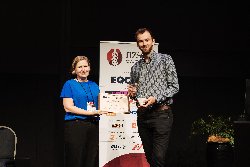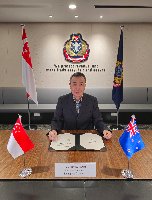NZ & Australian Unions Write To Tear Fund: Cotton On Is Not A Living Wage Employer
Representatives of FIRST Union and the Australian United Workers Union have this week written to the Tear Fund, producers of the yearly NZ Ethical Fashion Guide, to question the grading of multinational Australian fast fashion retailer, Cotton On, in the Tear Fund’s current and future reports due to the company’s ongoing attempts to prevent its workers from negotiating a new Collective Agreement that provides a pathway to a living wage, FIRST Union said today.
The Ethical Fashion Guide for 2019 grades fast fashion retailers in New Zealand on a series of themes related to ethical consumption and production across five categories: policies, traceability and transparency, auditing and supplier relationships, environmental management, room for improvement and worker empowerment. The latter category is the focus of the trans-Tasman unions’ letters; both of whom represent Cotton On workers in retail and distribution. The company received an "A-" grade for worker empowerment, and the unions consider that Cotton On supplied the Ethical Fashion Guide with incorrect information regarding its policies on living wages.
Tali Williams, FIRST Union Secretary for Retail, pointed to the four criteria used by the Tear Fund to assess a company’s performance in this category:
- Has the company developed a living wage methodology and calculated a living wage for each region that it operates in?
- Has the brand published a commitment to pay living wages, which is timebound and measurable, including a methodology or benchmark?
- What percentage of facilities have projects to improve wages?
- What percentage of facilities pay a living wage?
"It’s demonstrably clear that the Cotton On Group do not meet any of these standards in New Zealand," said Ms Williams.
"Cotton On have not developed a living wage methodology for this part of their supply chain and could not produce documentation when requested. They have certainly not published a commitment to pay a living wage that is timebound and measurable."
"The only project to improve wages in the retail and distribution centres has been undertaken by our unions’ attempts to negotiate a new collective agreement, and there are currently no living wages paid by Cotton On within either the retail or distribution centres."
"We didn’t raise concerns when the 2019 report was released as our hopes were that we could reach a living wage or a pathway to it during our ordinary bargaining process - instead, we have waited four months for the employer to even return to the table, and in the meantime, they are proposing a reduction in wages and conditions that would return most new workers to the minimum wage."
"For our members who work at Cotton On, it is the height of hypocrisy to see their bosses lauded as figureheads of the ethical fashion movement when they treat their employees as disposably as the clothing they sell."
Matt Toner, Director of the Australian United Workers Union, said NZ workers were facing similar hurdles as their Australian counterparts during combative bargaining processes that revealed the company’s true position on ‘worker empowerment’:
"We were extremely disheartened to hear that despite numerous attempts, Cotton On has refused to move from their position - that is, Cotton on are still seeking to remove a clause in the NZ agreement designed to ensure workers would stay at least 3% above the minimum wage at all times," said Mr Toner.
"We will continue to stand in solidarity with our NZ comrades until a fair agreement is reached."
The Cotton On Group is also a member of ACT (Action, Collaboration, Transformation); a collective of 20 global companies who "are committed to working together to help transform the way wages and working conditions are currently set in the global garment, textile and footwear sector." One of the central tenets of ACT is that "workers must be free and able to exercise their right to organise and bargain collectively in accordance with ILO conventions"; another is that "agreement on a living wage should be reached through collective bargaining between employers and workers and their representatives, at industry level."
Ms Williams is not convinced that Cotton On should be allowed membership to this group either, in light of their underhanded industrial tactics in New Zealand:
"It’s a bit of an untold story in New Zealand - consumers like cheap goods and quality service from retail staff, and Cotton On offer both - but I think that if more people understood the way these companies operate behind the scenes, and how that contradicts the public image they’ve cultivated, they might reconsider their support," said Ms Williams.
"At this stage, it looks likely that industrial action will continue and escalate at Cotton On stores throughout New Zealand in 2020, and in the meantime, it’s time to set the record straight."
"We hope the Tear Fund will take our concerns seriously and consider asking Cotton On to address the glaring hypocrisy of their actions in 2019 given they will soon be graded again in the Ethical Fashion Guide for 2020."


 John Mazenier: Gaffer Tape And Glue Delivering New Zealand’s Mission Critical Services
John Mazenier: Gaffer Tape And Glue Delivering New Zealand’s Mission Critical Services Earthquake Commission: Ivan Skinner Award Winner Inspired By Real-life Earthquake Experience
Earthquake Commission: Ivan Skinner Award Winner Inspired By Real-life Earthquake Experience Reserve Bank: Consultation Opens On A Digital Currency For New Zealand
Reserve Bank: Consultation Opens On A Digital Currency For New Zealand NIWA: Ship Anchors May Cause Extensive And Long-lasting Damage To The Seafloor, According To New Research
NIWA: Ship Anchors May Cause Extensive And Long-lasting Damage To The Seafloor, According To New Research New Zealand Customs Service: A Step Forward For Simpler Trade Between New Zealand And Singapore
New Zealand Customs Service: A Step Forward For Simpler Trade Between New Zealand And Singapore Horizon Research: 68% Say Make Banks Offer Fraud Protection
Horizon Research: 68% Say Make Banks Offer Fraud Protection



